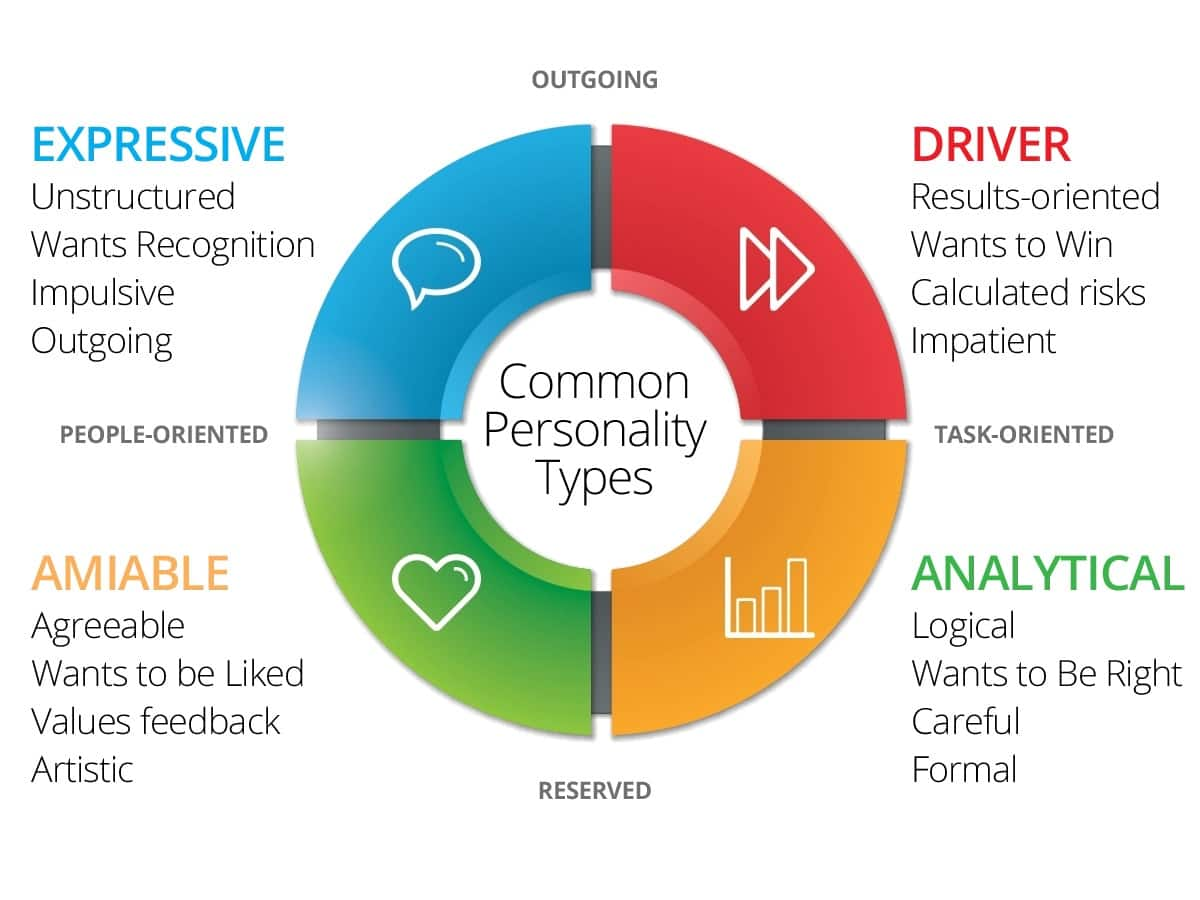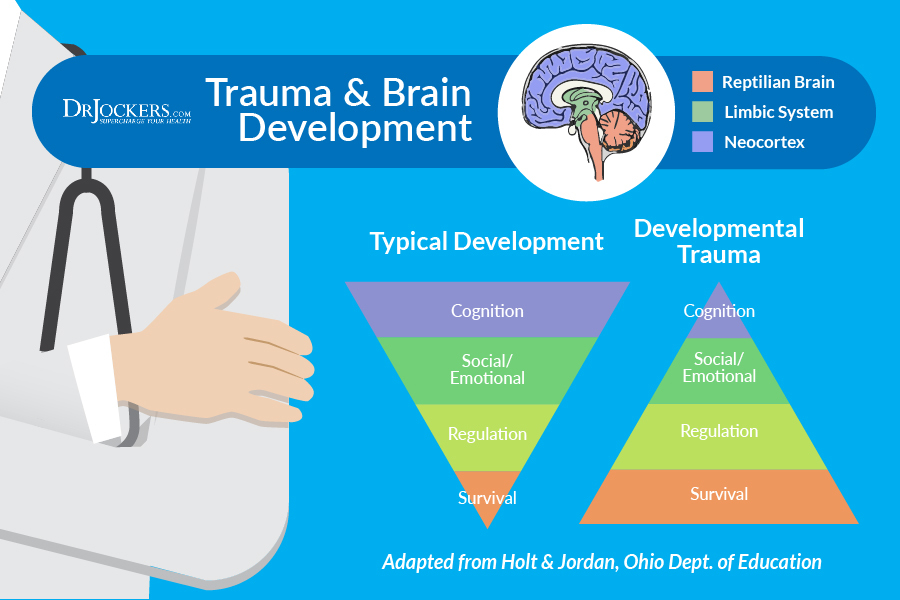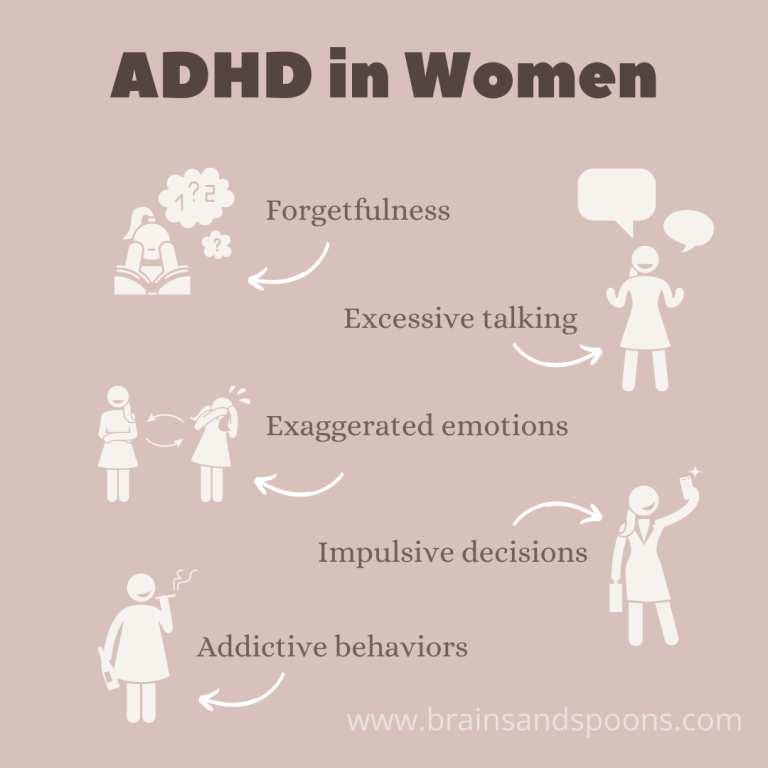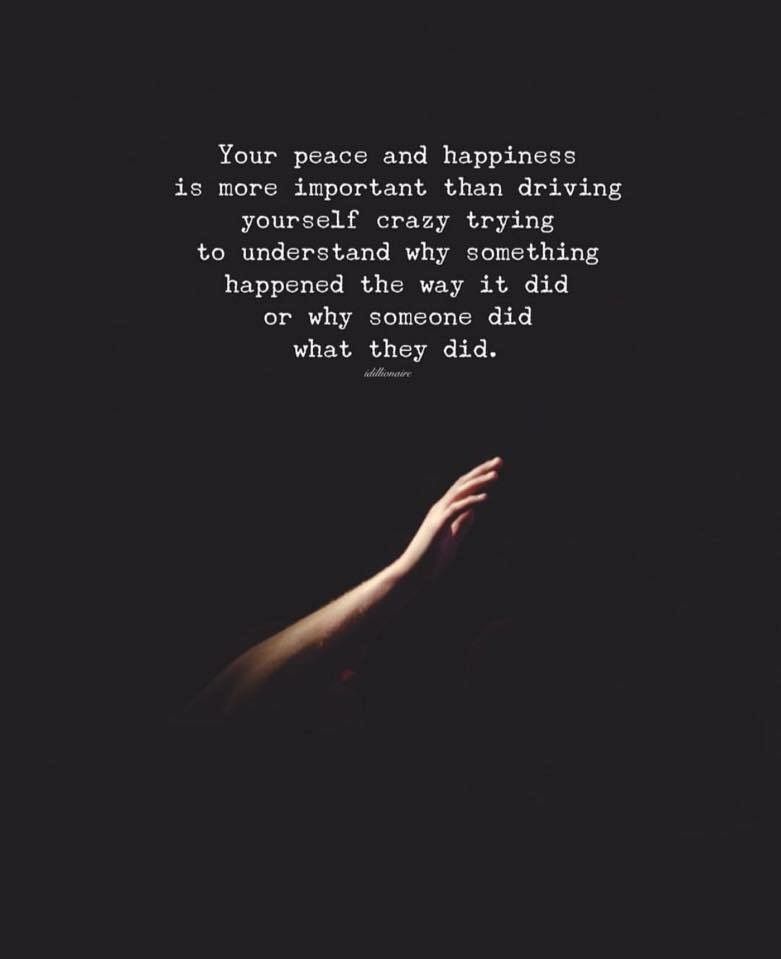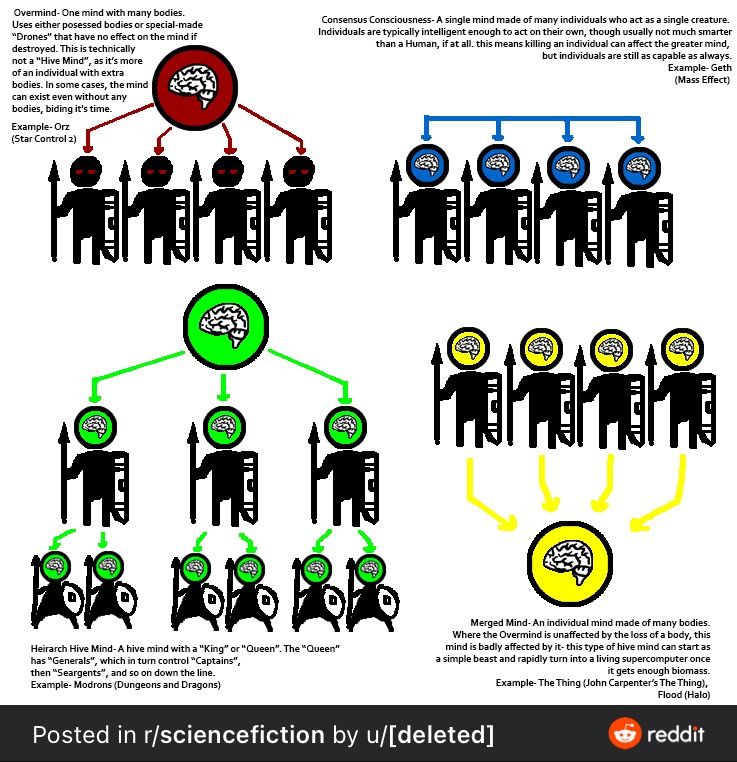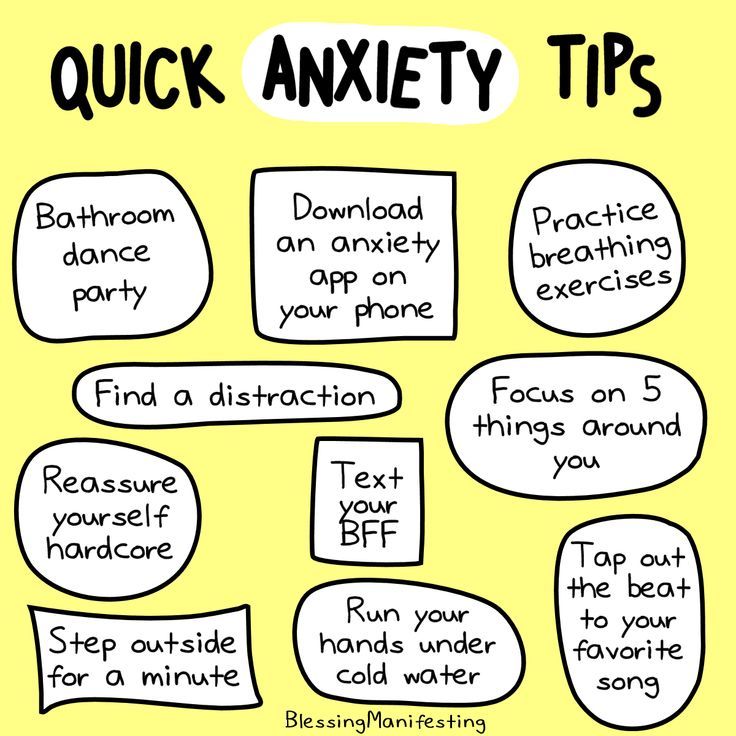Personality types that are compatible
What the Myers-Briggs Test Says
Do you know your personality type and who you’re most compatible with? The Myers-Briggs test aims to help you find out.
It’s natural to wonder if some types of personalities are more compatible with yours, or if other factors have more relevance when trying to find a match. This is a question that experts may not have an exact answer to just yet.
Your personality is a distinctive combination of thoughts, emotions, and experiences that make you who you are. It’s unique and complex and may not fit into a rigid mold of traits. It can also change and adapt to circumstances.
For decades, experts have tried to classify the possible different types of personalities in an attempt to better understand why everyone is so different and yet so similar in some aspects.
The Myers-Briggs Type Indicator (MBTI) is one of the tools developed to identify personality types. It isn’t evidence-based, and its validity is often questioned.
The MBTI is a self-reported questionnaire developed by the mother-daughter duo of Isabel Myers and Katharine Cook Briggs, and it’s based on the personality theory by Carl Jung.
The questionnaire asks you to indicate your preferences in different areas of life. It’s designed to measure:
- how you relate to the world around you
- where you draw your energy from
- what your innate behaviors are
Based on these answers, the Myers-Briggs test assigns 1 of 16 categories. Each of these is identified by a four-letter system indicating your dominant traits based on these scales:
- extroversion versus introversion
- sensing versus intuiting
- thinking versus feeling
- judging versus perceiving
Since categories are based on your own report about your interests, preferences, and tendencies, the MBTI could help you determine what other personality types have similar interests or preferences and may be compatible with you.
But, much like personality, romantic compatibility isn’t an exact science.
In fact, some people believe that opposites attract when it comes to personality traits, but 2019 research actually suggests otherwise.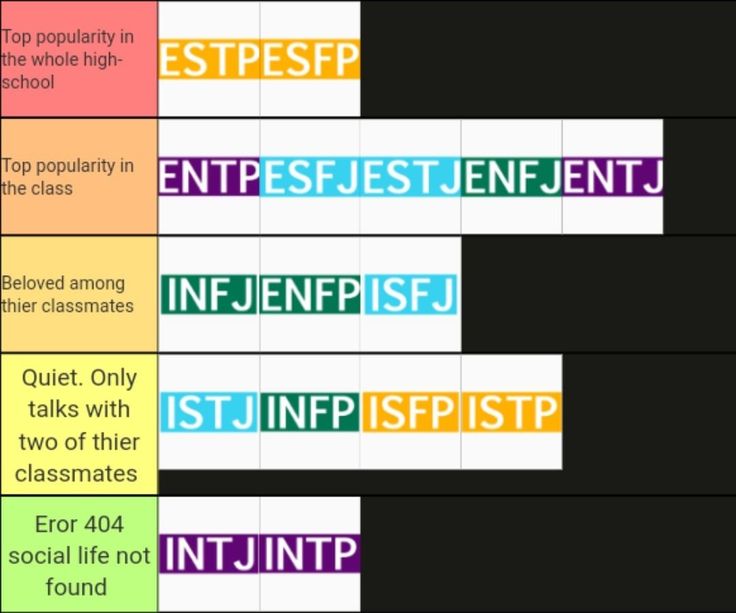
Romantic compatibility may depend on a lot of factors and circumstances, and this is just one of many ways to look at it.
The Myers-Briggs personality test isn’t validated by research, and many experts suggest it as a fun personal exercise rather than an exact scientific method to determine personality type or compatibility.
Based on the answers to your self-report, the Myers-Briggs test indicates where you stand on four personality scales.
Extroversion vs. introversion (E/I)
This personality scale is about where a person draws their energy from.
Extroverts get recharged and energized from being around other people. They’re typically outgoing and action-oriented, and they can feel mentally and emotionally drained if they spend too much time on their own.
Introverts draw their energy from alone time and tend to prefer meaningful social interactions with fewer people instead of large groups. They can get fatigued and stressed if they don’t get enough time by themselves.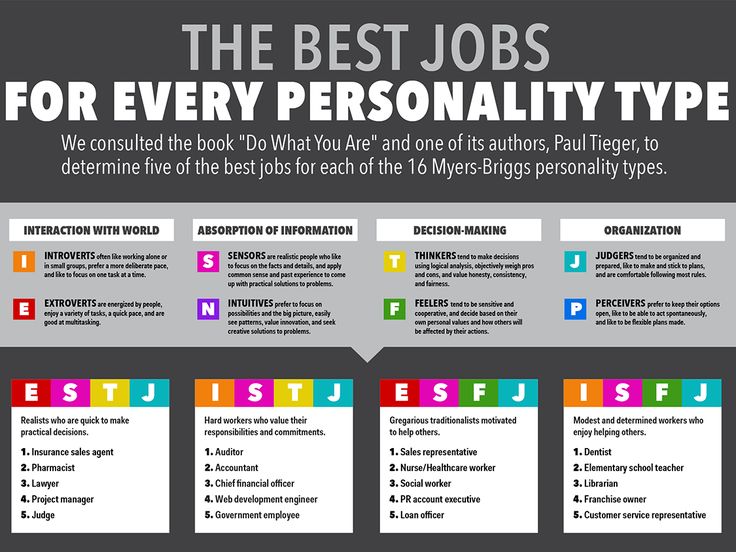
Sensing vs. intuiting (S/N)
This category involves the way you gather relevant information in your life.
If you lean toward sensing, you pay more attention to the tangible information you receive from your five senses. You are more likely focused on facts and concrete data that you can measure.
If, on the other hand, you rely on intuition, you’re more focused on:
- abstract concepts
- gut feelings
- contemplating all possibilities
- exploring underlying principles
Thinking vs. feeling (T/F)
This category refers to how you make decisions based on the information you gathered.
If you’re closer to the thinking side of the scale, you may prefer to make rational, logic-driven decisions that you feel are objective.
If, instead, you lean toward the feeling side of the scale, you may make decisions based on emotional and human aspects at the moment of deciding.
Judging vs. perceiving (J/P)
This scale is about how you operate on a daily basis.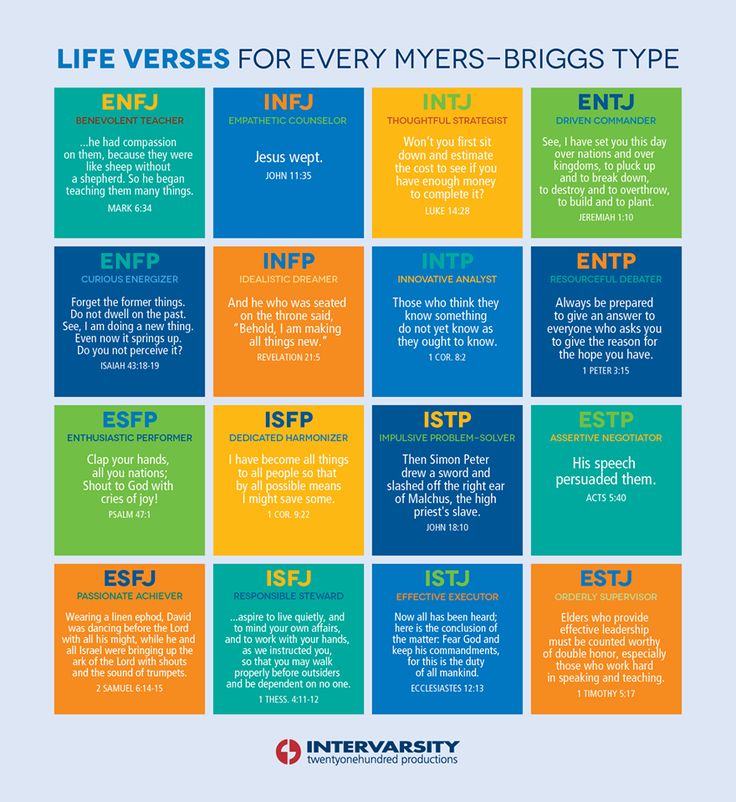
If you lean toward the judging side, you may prefer structure, order, and planning in everything you do.
If you’re more of a perceiving person, you may be more flexible, adaptable, and spontaneous in your actions.
The 16 personalities
When you take the Myers-Briggs test, you’ll end up with a four-letter tag assigned to your personality. This result depends on where you fall on each of the above-mentioned personality scales. So, each letter comes from one of the scales indicating the side you lean toward.
- I: Introvert
- E: Extrovert
- N: Intuiting
- S: Sensing
- T: Thinking
- F: Feeling
- J: Judging
- P: Perceiving
The 16 Myers-Briggs personality types are:
- ISTJ — The Inspector
- ISTP — The Crafter
- ISFJ — The Protector
- ISFP — The Artist
- INFP — The Mediator
- INFJ — The Advocate
- INTP — The Thinker
- INTJ — The Architect
- ESTJ — The Director
- ESTP — The Persuader
- ESFP — The Performer
- ESFJ — The Caregiver
- ENFP — The Champion
- ENFJ — The Giver
- ENTP — The Debater
- ENTJ — The Commander
Some experts have tried to identify compatible personality types based on the Myers-Briggs test.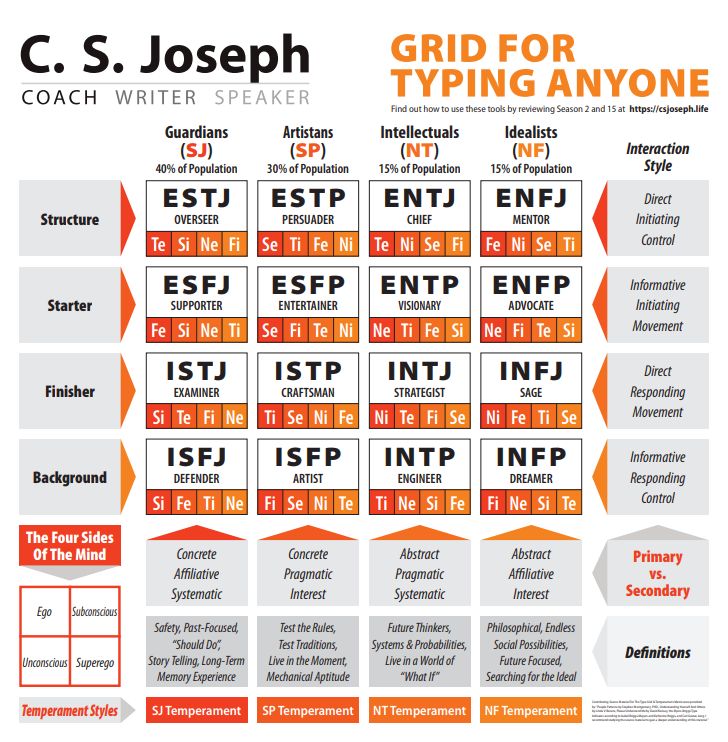 However, no exhaustive research has been conducted to validate the scales or establish a degree of compatibility. This is one of the reasons why the MBTI is typically seen as a way to entertain yourself rather than get accurate answers about your personality type.
However, no exhaustive research has been conducted to validate the scales or establish a degree of compatibility. This is one of the reasons why the MBTI is typically seen as a way to entertain yourself rather than get accurate answers about your personality type.
In their book “Just Your Type: Create the Relationship You’ve Always Wanted Using the Secrets of Personality Type,” Barbara Barron and Paul D. Tieger say they’ve found that many personality types are more satisfied when they’re paired with similar partners.
In particular, these pairings had romantic satisfaction rates over 70%:
- SJ: sensing and judging
- NF: intuiting and feeling
Barron and Tieger also found that compatibility increases when two partners are both feelers, even if they’re different in other aspects. This may be because feelers tend to spend a lot of energy on their relationships and often value open communication.
Specifically, based on Barron and Tieger’s research, these categories would be the most compatible:
- ISTJ, ESTJ, ISFJ, and ESFJ
- INFP, ENFP, INFJ, and ENFJ
Other research also shows that, based on similar interests and patterns of behaviors, these are some of the most highly compatible matches:
- ENFJ and INFP
- ENTJ and INFP
- INFJ and ENFP
- INTJ and ENFP
- ENTP and INFJ
- ISFP and ENFJ
- ENTP and INTJ
- INTP and ENTJ
- ESTJ and ISFP
- ESFJ and ISFP
- ISTJ and ESFP
- ISFJ and ESFP
- ESTJ and ISTP
- ESFJ and ISTP
Can you make it work with an ‘incompatible’ partner?
The Myers-Briggs personality indicator test is just one of many possible ways to look at personality traits.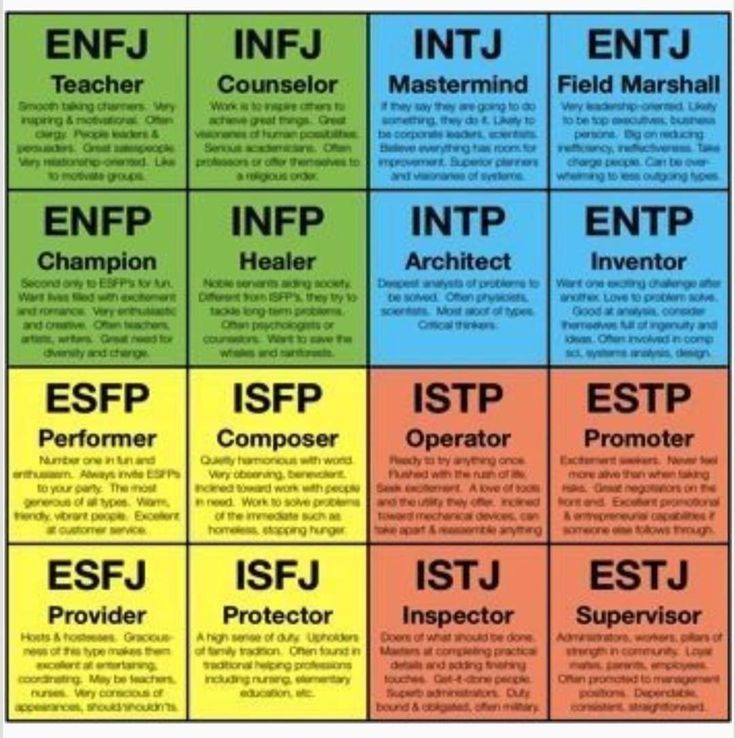 The test can be a fun and informative way to get to know yourself and your partner better, but it should be taken with a grain of salt.
The test can be a fun and informative way to get to know yourself and your partner better, but it should be taken with a grain of salt.
Many complex parts are involved in human interaction, particularly romantic relationships. And since you can actively work on making romantic connections last, as long as there’s love and willingness, you could make it work with any partner, incompatible or not.
The Myers-Briggs type indicator isn’t a validated tool to evaluate your personality type or romantic compatibility with someone else. However, it may be a fun way to question yourself and your partner in a way that fuels deep conversation about your interests and values.
The MBTI uses four scales to categorize a person’s personality based on their decision making behavior, preferences, and worldviews. It includes 16 personality types.
Some people use the test to evaluate romantic compatibility. In general, those who tend to lean on feelings seem to be more compatible with each other, even if they score differently on other scales.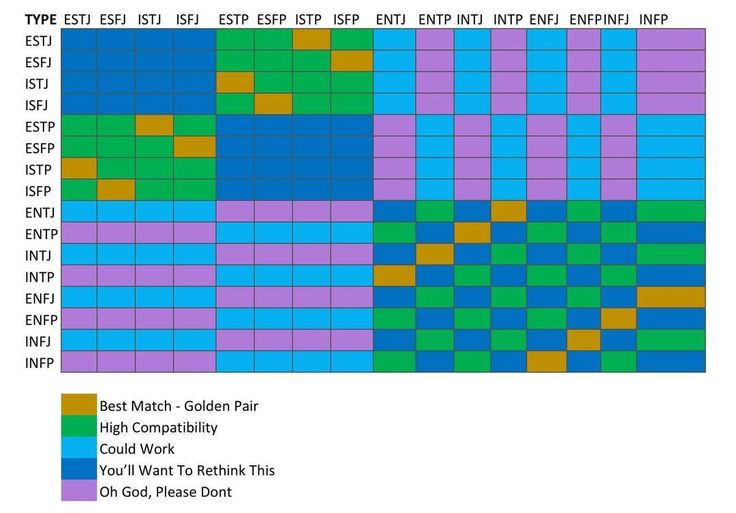
But romantic compatibility is as complex as individual personality, so it’s difficult to calculate it as a mathematical formula. Still, taking the Myers-Briggs test can be a fun way to learn more about you and your partner’s interests and priorities.
Compatibility of INFP with ESTP in Relationships
As an Intuitive Feeling type, you seek deep, meaningful connection in your relationships. You want to truly understand what drives the people you care about and help them to be their best selves. You are drawn to people who seem to be sensitive, thoughtful, and idealistic, and prefer relationships that help you to grow and develop.
Your counterpart is a Sensing Perceiver type, which means their core focus is enjoying the moment. In relationships, this means that they look for people that they have an easy synergy with, and often prioritize one thing: FUN. As an SP type, your counterpart doesn't think too hard about whether they connect with other people on a deep level.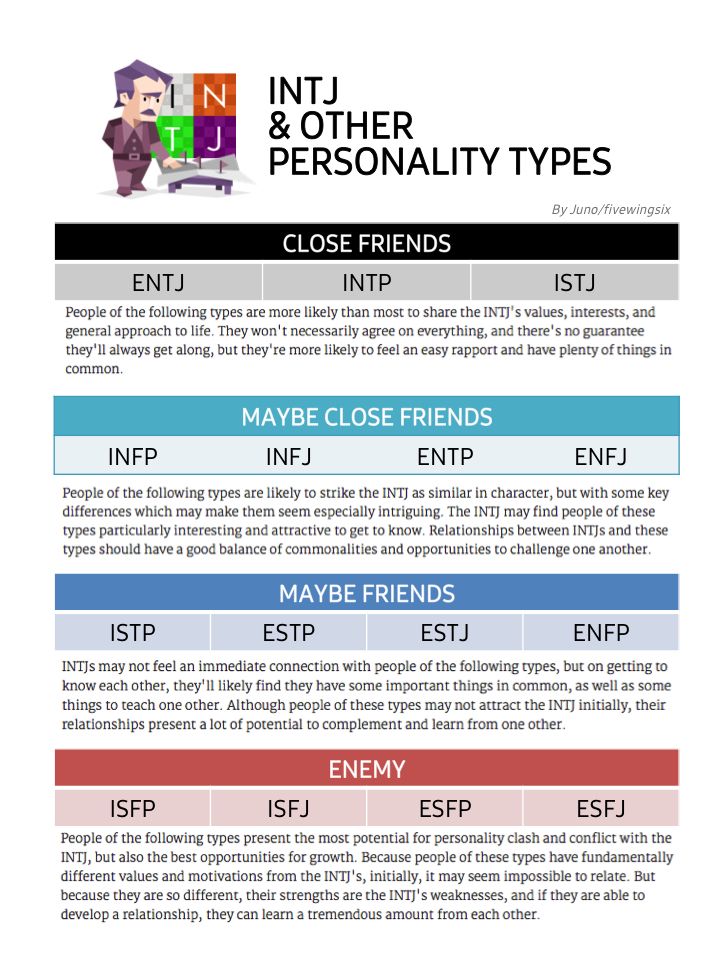 They're simply looking for companions to keep them company on this crazy ride called life.
They're simply looking for companions to keep them company on this crazy ride called life.
At first glance, it may seem as though the two of you have nothing in common—and in fact, you do have very different ways of seeing the world and thinking about things. The first time you meet this person, unless you discover a shared interest, it may seem that you have nothing to talk about.
You tend to be idealistic, sensitive, and empathetic. You feel things deeply and take your values seriously. You are very much in tune with the state of the world and the feelings of the people in it, and you are always thinking about how to make the world a better place. Because you are so idealistic, you sometimes you get caught up in your imagination and lose track of real life.
In contrast, your counterpart is all about action. They live in the moment, not in their head, and like to get things done. They have little interest in fantasy, and like to stay firmly grounded in reality. They spend very little time wondering how the world could be different; they're too busy enjoying it as it is.
So what might draw you together? Plenty. For one thing, this might be just the relationship you need to get you out of your dreams and idealized visions and into the present moment. If you struggle to stay grounded, this person can bring you down to earth.
Plus, if you stick with it, you might find that you have more fun with this person than anyone else in your life. They tend to be spontaneous, hedonistic, and even a bit of a daredevil, and they may inspire you to take chances that you wouldn't otherwise risk.
This person likely has a higher energy level than you do, and you may find their enthusiasm overwhelming at times. You may find it important to set boundaries and let them know when you need space and quiet.
You have a different style of communication from this person, and you’ll need to make some accommodations if this relationship is to reach its full potential.
You tend to communicate in an abstract, theoretical way. You focus on making connections and interpreting meaning, exploring the "why" of the thing in question.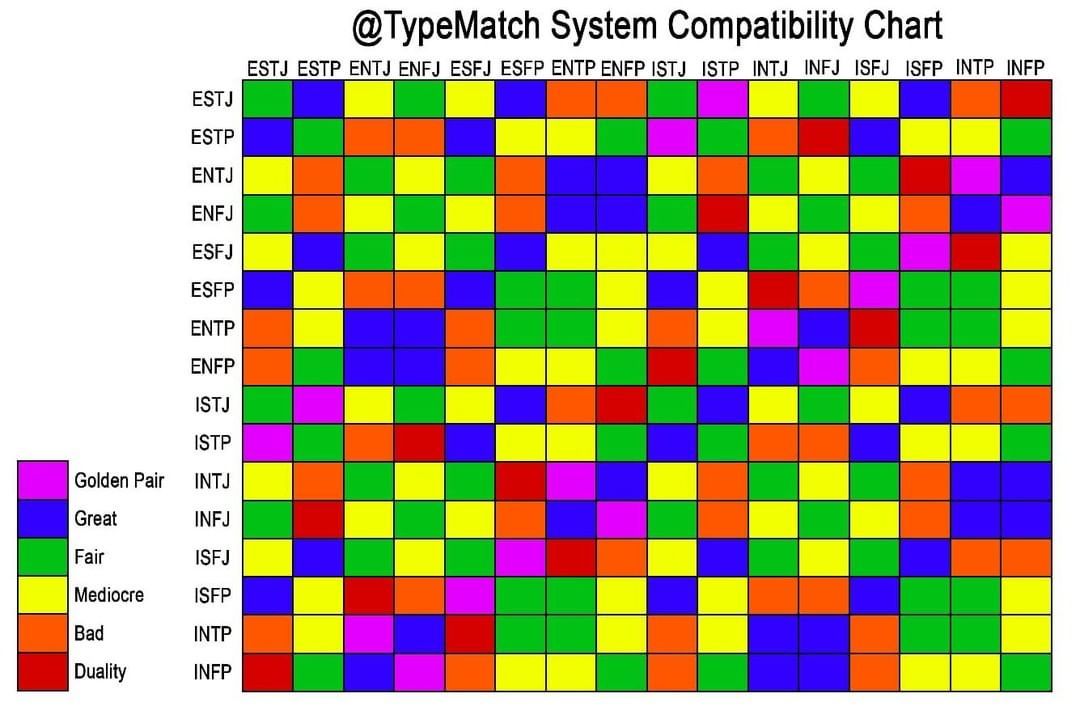 Much of what you communicate is your idea, theory, or interpretation of what you see, rather than a direct observation. When making plans, you are inclined to spend a lot of time talking about the overall goal or theme of the plan—without having much interest in the details of exactly what will happen or how.
Much of what you communicate is your idea, theory, or interpretation of what you see, rather than a direct observation. When making plans, you are inclined to spend a lot of time talking about the overall goal or theme of the plan—without having much interest in the details of exactly what will happen or how.
In contrast, your counterpart tends to communicate in a straightforward, concrete way, focusing on facts, details, history, and real-life experiences. They focus on the "what" when discussing something, and convey information that they observed directly or can back up with real-life evidence. When making plans, they tend to focus on the specific steps that will occur. And generally, they're interested in talking about real things, not ideas or theories.
While it may sound like you are speaking different languages, the truth is that although you have different comfort zones when it comes to communication, you are well able to get out of those comfort zones to meet halfway—and you'll both be the better for it.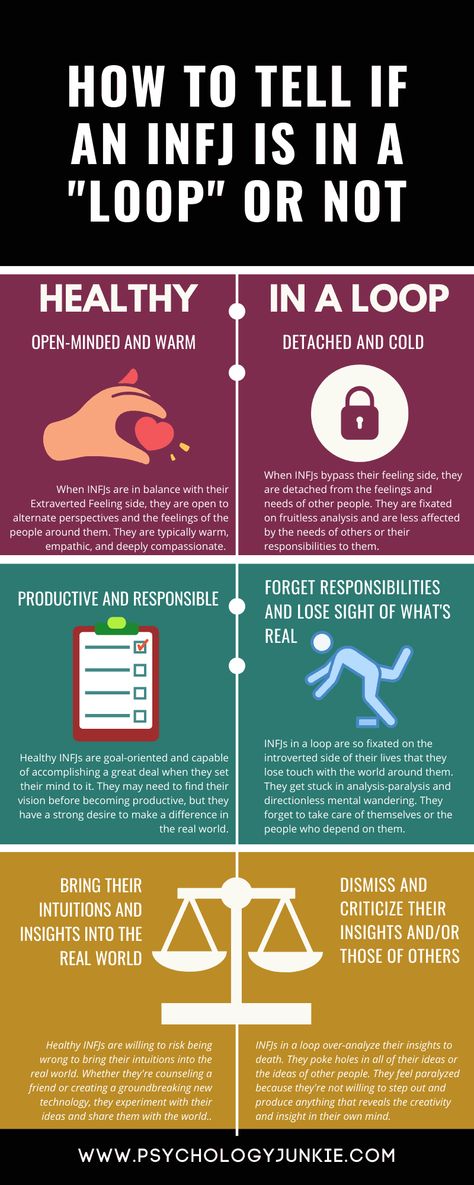 You can help your partner to stretch to look beyond the obvious of things and explore the deeper meaning. And in turn, they can help you to come back down to earth and discuss the details and facts of a situation, not just the big idea.
You can help your partner to stretch to look beyond the obvious of things and explore the deeper meaning. And in turn, they can help you to come back down to earth and discuss the details and facts of a situation, not just the big idea.
When talking with this person, you may fall into the role of listener by default. Because they are more extraverted than you are, they'll tend to naturally speak more quickly and have more to say. You tend to be a bit more quiet and reserved, and are often more comfortable letting others have the floor. You may leave conversations with this person feeling like you actually didn't say much at all.
This can be a comfortable dynamic sometimes. Many introverts like having friends and associates who are dynamic and chatty and keep the conversation moving. Other times, it can be frustrating. Extraverts sometimes assume that because Introverts are a bit slower to get going, they have nothing to say. Your Extravert friends may chatter on, thinking that if they don't fill the silence, no one will.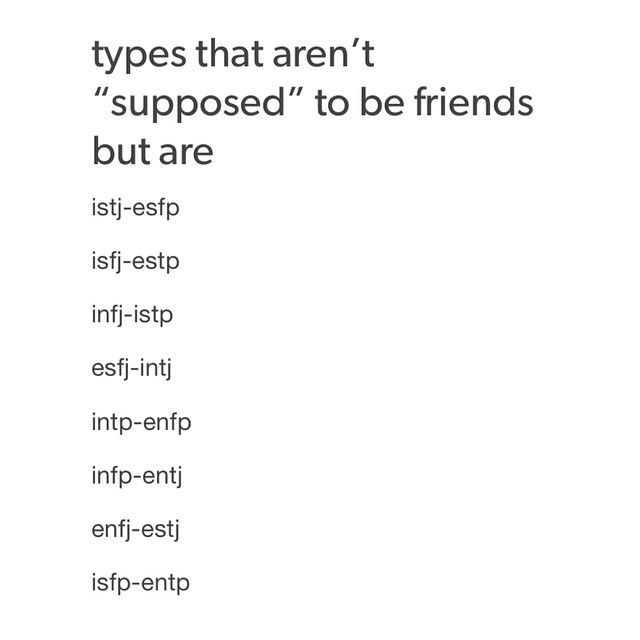 In fact, you might appreciate them slowing down a bit, asking more questions, and giving you the time and space to express yourself. You may not have a talk-show-host personality, but that doesn't mean you have nothing to share.
In fact, you might appreciate them slowing down a bit, asking more questions, and giving you the time and space to express yourself. You may not have a talk-show-host personality, but that doesn't mean you have nothing to share.
Consider the dynamic between the two of you and ask yourself if it works for you. Does your Extraverted counterpart make space for you to share your thoughts and feelings? Or do you feel like you're being steamrolled? If you never feel you get to express yourself with this person, it's time to let them know that your relationship needs some tweaking.
Truth be told, the two of you probably don't have a lot in common when it comes to what you value. While you may share some commonalities in religion, political orientation, or other affiliations, the way you think about the world and what is important is fundamentally different. If you agree on matters of morals and ethics, it's probably for very different reasons.
Your values system is based on a deep empathy and compassion for others.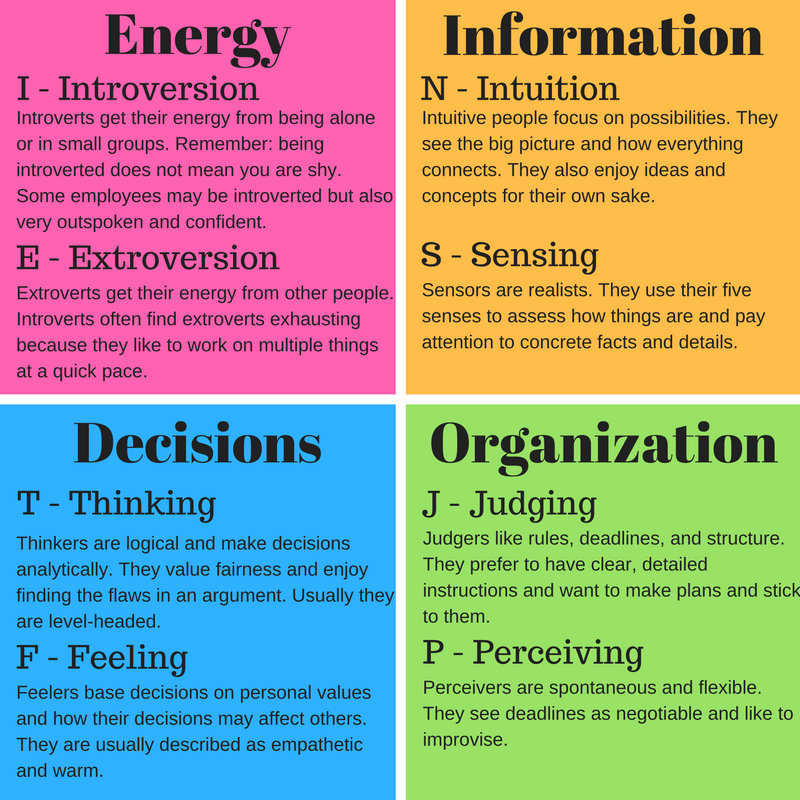 You can't watch the news without feeling the pain of starving children; those commercials with sad kitties at the pound were made for people just like you. Because compassion is such a big part of who you are, it motivates your biggest decisions in life. Your career was probably chosen because it is consistent with your values and the changes you want to make in the world. Your friends are probably people who feel the way you feel about the issues that are dear to your heart.
You can't watch the news without feeling the pain of starving children; those commercials with sad kitties at the pound were made for people just like you. Because compassion is such a big part of who you are, it motivates your biggest decisions in life. Your career was probably chosen because it is consistent with your values and the changes you want to make in the world. Your friends are probably people who feel the way you feel about the issues that are dear to your heart.
In contrast, your counterpart is deeply practical and logical. It's not that they don't care about others; they just don't spend quite as much time and energy caring as you do. And when they are concerned with other people, they typically feel that a pragmatic solution is the best one. They might spend an afternoon helping a needy friend fix a broken window, or donate money to a local school. But typically their instinct to help is out of a sense of dutiful social responsibility, rather than the empathetic heartache that's more familiar to you.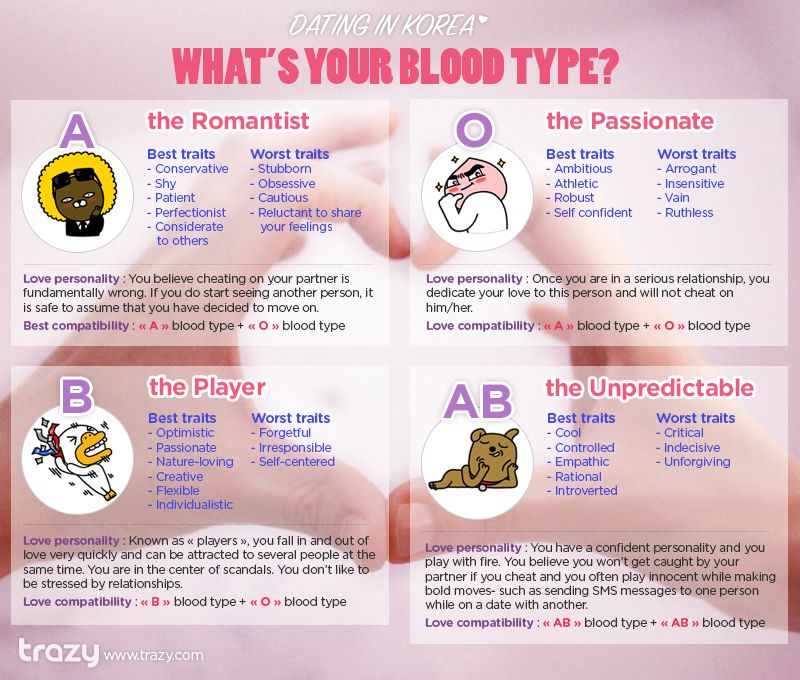 And usually, once they've helped, they move on with their day. Caring for others is unlikely to be as central to their lives as it is to yours.
And usually, once they've helped, they move on with their day. Caring for others is unlikely to be as central to their lives as it is to yours.
You may find yourself deeply hurt by your counterpart's approach when discussing values that are important to you. You are deeply idealistic and easily imagine how the world could be a better place. They, on the other hand, don't visualize quite so easily, and they often don't see a big problem with how the world is now. They tend to be suspicious of new ideas and blunt in their communication, which in practice means that they'll often unceremoniously shoot down your suggestions with "That would never work in the real world" or "What planet are you on?!"
On the other hand, because you are so different, you have the opportunity to introduce one another to new ways of thinking. Your counterpart tends to value tradition and the wisdom of experience much more than you do, and they can help you to see the merit in looking to the old ways.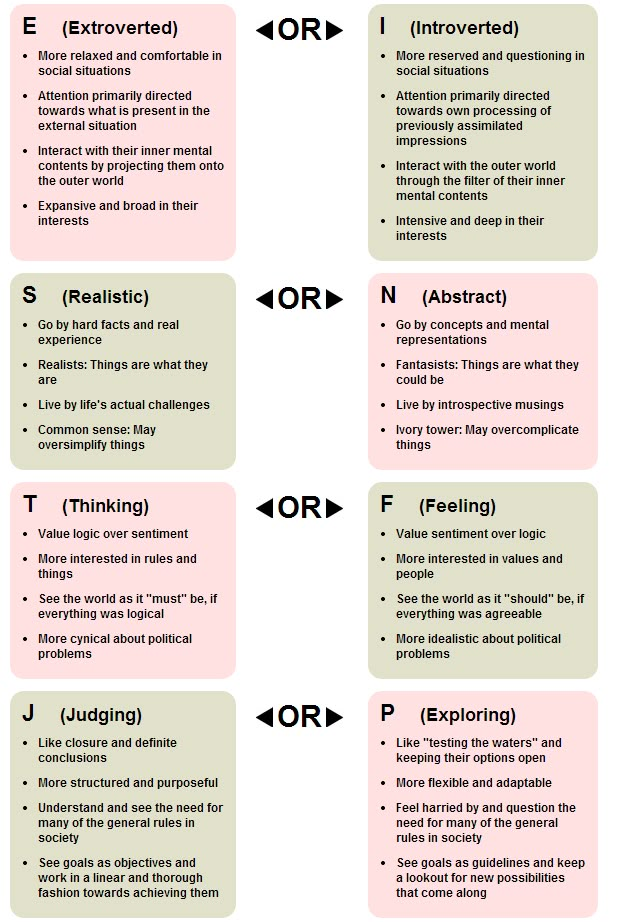 And if you're willing to stick with them, you have the ability to help them become softer, gentler, and more emotionally in tune.
And if you're willing to stick with them, you have the ability to help them become softer, gentler, and more emotionally in tune.
You take a similarly unstructured approach to life and are fairly relaxed about schedules, plans and household systems. If you share space, it’s likely that neither of you will be motivated to take on household responsibilities. You both prefer to play first and work later, and there may need to be some discussion about getting the chores done.
Since neither of you want things to be fully planned and predictable, you’re rarely overwhelmed by disorganization. You both enjoy leaving room for creativity, and enjoy setting a pace together that will allow you to do things on the fly.
Finding harmony in your life together may take some effort because you see and communicate different things. While you look for patterns and metaphors in every interaction, your counterpart takes things at face value. For them, daily life is for living through their body and their senses.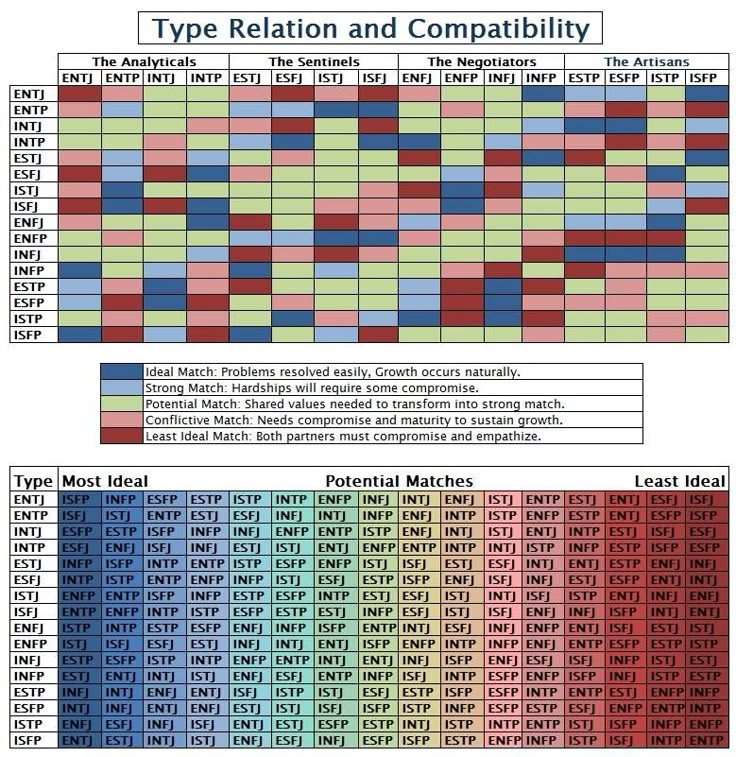 For you, it’s a springboard for testing out ideas.
For you, it’s a springboard for testing out ideas.
In your mind, life exists to feed your curiosity and help you learn new things. Discovering new ideas is a lifelong pursuit and you take it very seriously. You tend to read widely, take classes for fun and pursue activities that allow you to explore the ‘yet to be discovered.’
The reverse is true for your counterpart. They are one of life’s ‘doers’ and they believe that actions speak louder than words. They tend to choose activities that will stimulate their senses or their body in some way—whether that’s cooking, bungee jumping or arts and crafts. There are plenty of hobbies here that you could both be interested in, but it can cause rifts between couples who can’t agree on what they want to do in their spare time.
Routines can be another area of conflict. While you dream of adventure to keep things interesting, your counterpart has a low tolerance for shaking things up for the sake of it. Instead of seeing this as a source of conflict, understand that you have much to offer each other here.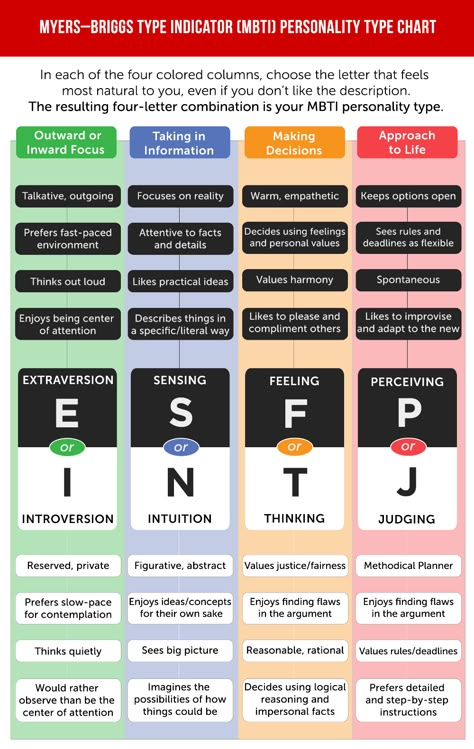 You can focus on the big picture and offer up the angles and possibilities that give your partner a broader understanding of the world. They can focus on the details, on the present moment, and remind you what is important right now. As long as you’re communicating effectively, it’s a wonderful win-win.
You can focus on the big picture and offer up the angles and possibilities that give your partner a broader understanding of the world. They can focus on the details, on the present moment, and remind you what is important right now. As long as you’re communicating effectively, it’s a wonderful win-win.
Communicating your needs is crucial, as you both have a different tolerance for stimulation and social activities. You are energized by alone time and need regular periods of solitude to recharge your batteries. Your partner, by contrast, is energized by activity and probably makes plenty of room for friends, family, and social events. They won’t appreciate you refusing to socialize with them, leaving them alone and lonely, just as you won’t appreciate them overbooking the social calendar.
Communication is another challenge, since your partner prefers to deal with issues immediately while you may try to sweep problems under the rug. You need time to think something through before having an important conversation, and can feel backed into a corner if your partner gets all pushy and naggy.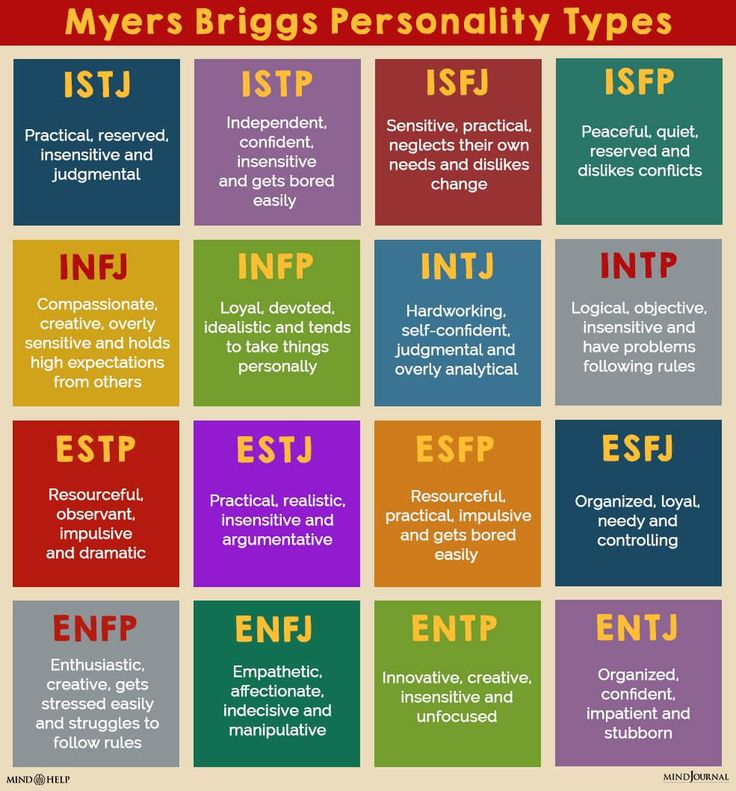 On the flip side, your partner knows how to speak their mind and defend their position, and it can be frustrating for them if they’re constantly having to drag a conversation out of you.
On the flip side, your partner knows how to speak their mind and defend their position, and it can be frustrating for them if they’re constantly having to drag a conversation out of you.
None of these differences is insurmountable and with a little compromise you can easily meet each other’s needs. Your partner’s job is to respect your need for solitude while encouraging you to attend events that are important to them. Compromise is a two-way street, and in return you must be fine with your partner going out and getting the social stimulation they need without resenting them for leaving you alone.
Myers-Briggs Personality Type Compatibility: What kind of people are meant for each other
Love
- Photo
- Adobe Stock
There are many ways to understand who you really are and what kind of people you will be most comfortable communicating with.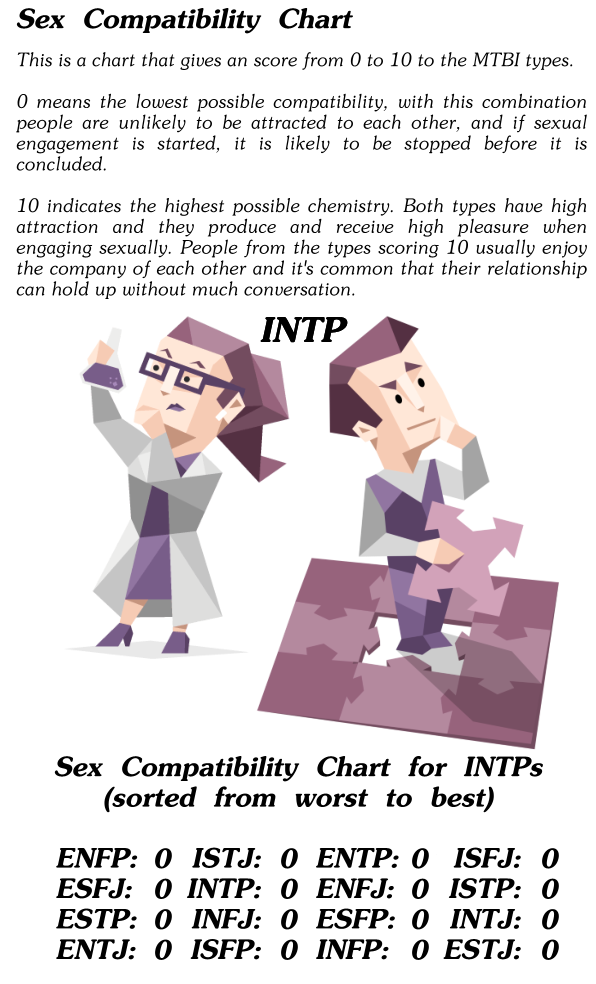 Some people trust horoscopes and compatibility of zodiac signs, others rely on socionics, others trust only psychology. Any of the ways can be working if you do not perceive it as the only truth: the truth is always in the middle. nine0003
Some people trust horoscopes and compatibility of zodiac signs, others rely on socionics, others trust only psychology. Any of the ways can be working if you do not perceive it as the only truth: the truth is always in the middle. nine0003
Among the various typologies, Myers-Briggs "characters" have recently gained popularity. This typology was developed by the writer Isabelle Briggs Myers and her mother Katerina Cooks Briggs, based on Jung's typology. Typology became especially popular in the 1940s and became a popular way in the United States and Europe to determine the professional and personal inclinations of a person.
Tests for this typology are currently included in the curriculum of many colleges, despite the fact that academic circles are wary of this classification. Psychologists and psychiatrists accept typology with many reservations and admit that it is more of a fun way to get to know yourself than a working principle worth living by. nine0003
- Photo
- Adobe Stock
What types are
We talked about different types of personality in more detail in a separate article.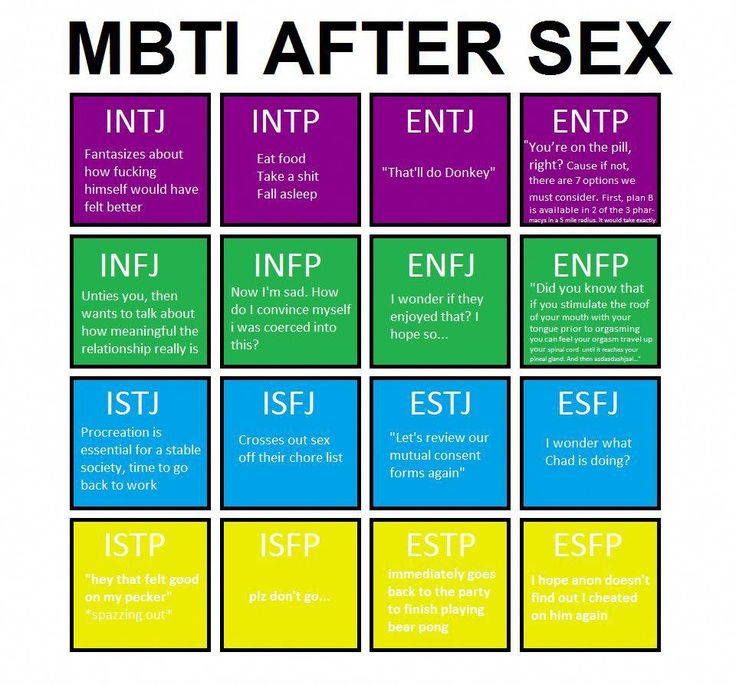 In short, all people have four parameters on the basis of which the division is made: introversion / extraversion, sensory / intuition, thinking / feeling, decisions / perception.
In short, all people have four parameters on the basis of which the division is made: introversion / extraversion, sensory / intuition, thinking / feeling, decisions / perception.
Four parameters multiplied by 4 options - you get 16 different variations. To save time, we will not describe the features of each - it's all on the Internet. Here they are:
ESTJ: Administrator
ESFJ: Teacher
ENFJ: Mentor
ENTJ: Commander
👉 To understand what type you belong to, you must pass the test - short or long -long.
What personality types converge best
The most optimal pairs are obtained from people who have two parameters that match, that is, two letters. This means that these people look at the world in the same way and perceive the surrounding reality. On the other hand, people with a complete match of characteristics will be bored together, and therefore at least 1-2 letters should be different.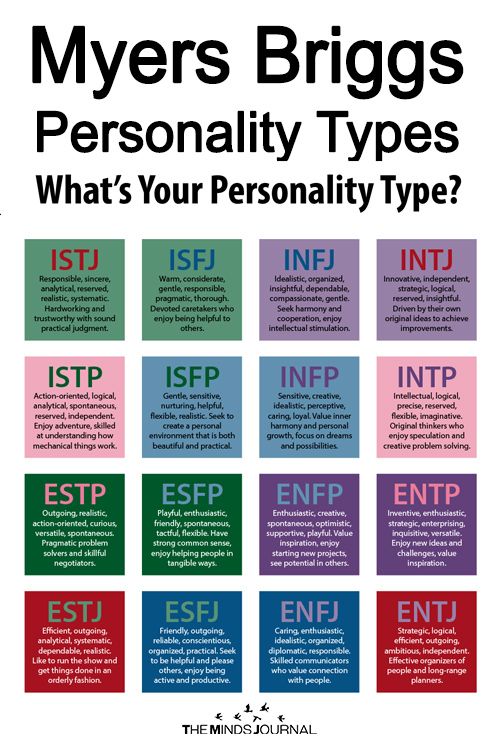 nine0003
nine0003
ENFP
-
Description: An enthusiastic, creative and sociable mind who never gets bored.
-
Ideal couple: INFJ and INTJ
Ideal partners for this extroverted type are not the same extroverts at all. ENFP is a rather impulsive type, and therefore he needs someone down to earth and intuitive. In turn, the energy of the “fighters” will not let INFJs and INTJs get bored. nine0003
ISFJ
These people seem to be made for serious long-term relationships: they are responsible, loyal and carefully choose a life partner. Someone completely opposite, like a determined extrovert, will help you enjoy the facets of the relationship that are most dear to them - intimacy, loyalty and depth of feelings.
- Photo
- Adobe Stock
ISFP
The most spontaneous and impulsive of all 16 types is not easy to deal with.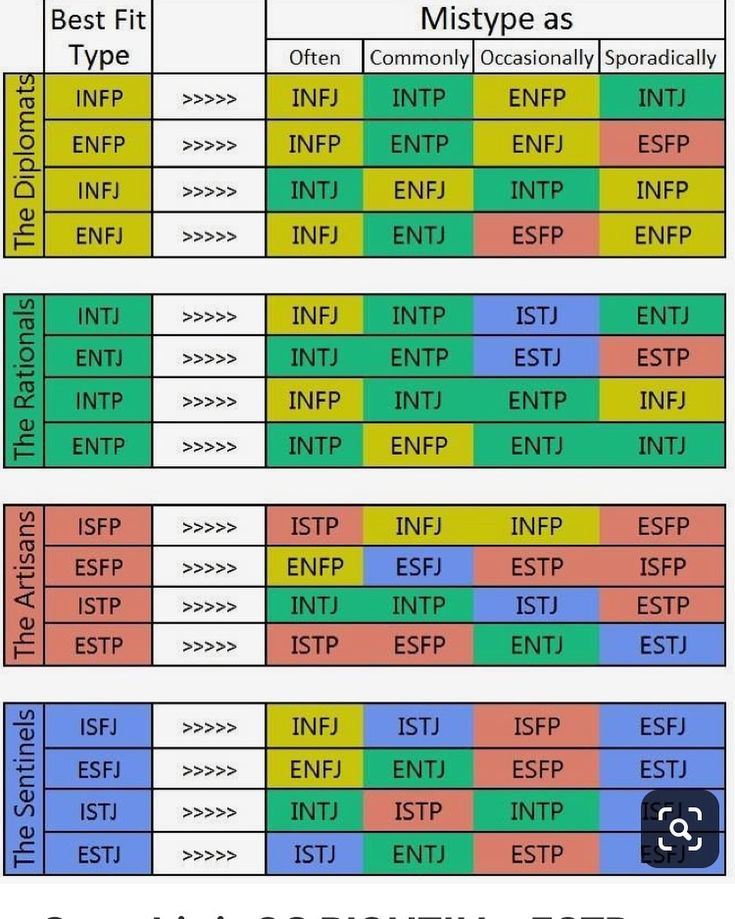 In addition, they are also introverts, and therefore all the magic and fireworks of emotions take place inside them. Extroverts will help this type to get out of his "shell", and the ability to plan ahead will save the couple from sudden decisions. nine0003
In addition, they are also introverts, and therefore all the magic and fireworks of emotions take place inside them. Extroverts will help this type to get out of his "shell", and the ability to plan ahead will save the couple from sudden decisions. nine0003
ISTJ
"Administrator" believes only what he sees with his own eyes. An ideal partner will help him focus not only on facts, but also on his feelings. At the same time, both agree that intuition takes over.
- Photo
- Adobe Stock
ISTP
"Virtuosi" do not seek to start a relationship, cherishing their freedom, but not against common adventures. They get bored easily, but they love making new friends - extroverts fully cover their need for communication. ISTPs are most compatible with ESFJs and ESTJs. nine0003
INFP
-
Description: Poetic, kind and altruistic people, always ready to help.
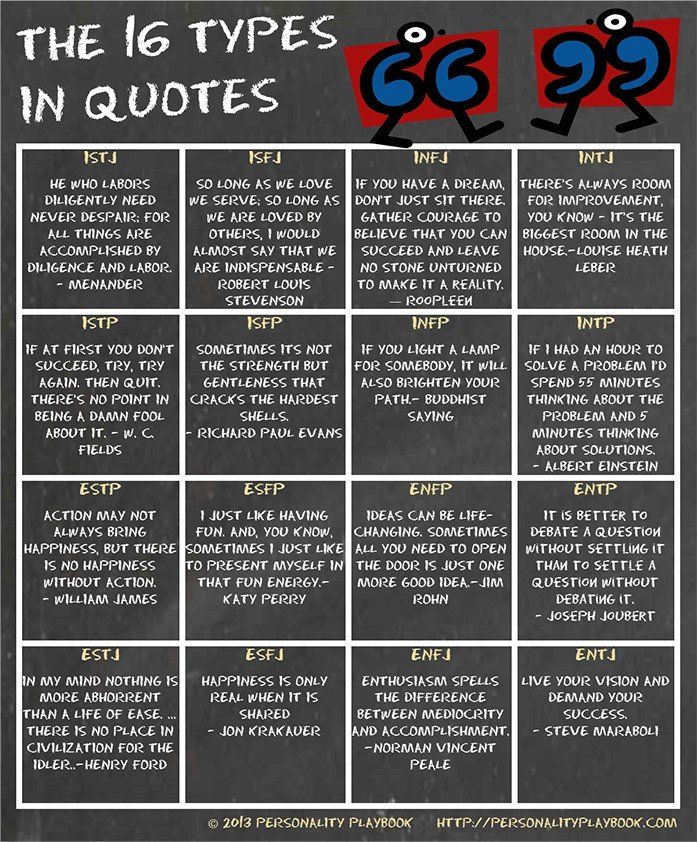
-
The perfect couple: ENFJ and ENTJ
"Intermediaries" feel more than they understand, and they need the same intuitions. On the other hand, ENFJs and ENTJs balance them by starting to prepare for problems in advance.
- Photo
- Adobe Stock
INTJ
Perfectionists and rather cold people in life. They need someone more open, extroverted, but also someone who also relies on intuition and can nip problems in the bud.
INTP
"Scientists" rarely open up to anyone and generally do not like it when they climb into the soul. Intuitive extroverts will know when it's best to leave this type alone and when to help make a difficult decision.
Subscribe to ELLE girl!
-
on Telegram ◽ on Viber
-
in VK ◽ in Zen
-
in VK about Korea
Tags
- Psychology
Lyubov
can you determine what your relationship with the guy of your dreams will be like? Can you establish not only a romantic, but also a physical connection? Knowing his personality type can help you with this and .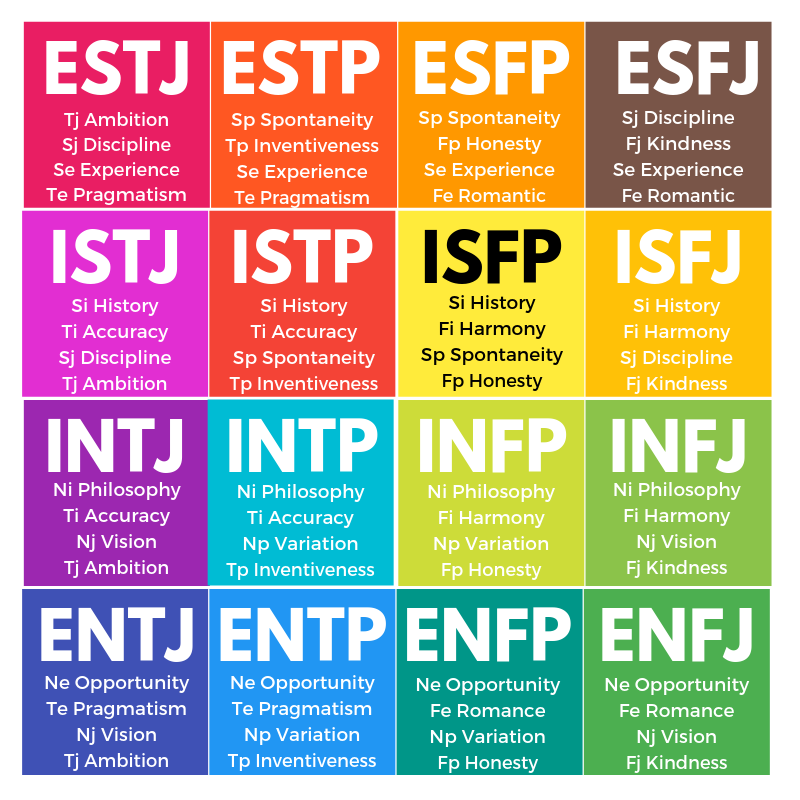 .. our hint is just below 😉
.. our hint is just below 😉
INFJ - Activist
Movie and TV characters: Dale Cooper (Twin Peaks), Edward Cullen (Twilight), Matt Murdock (Daredevil).
Guys with this personality type are looking for their one and only. For her, the Activist is ready for anything, including marriage, children, moving to a dream country, and going shopping on the weekend. Such people take romantic relationships extremely seriously, mostly planning them for a long period of time.
An activist is looking for his soulmate. It is important for them to have a rough connection and common interests with their partner. This personality type values honesty, love without barriers, and time spent with the person they love. In bed, they are attentive to the desires of the second half, each time giving all the best. An activist is a prince on a white horse that you read about in fairy tales 😉
ESTJ - Manager Robb Stark ("Game of Thrones"). nine0003
If passion and love are equal to fun and adventure for you, then you definitely need a cool Manager 😍 This person knows that a couple needs not only to look into each other's eyes, but also to have a great time - otherwise why all this? This type of personality will give you not only hot nights, but also bright, joyful days, where there will always be someone you can rely on!
What is especially cool is that even the longest relationship with the Manager will never get boring.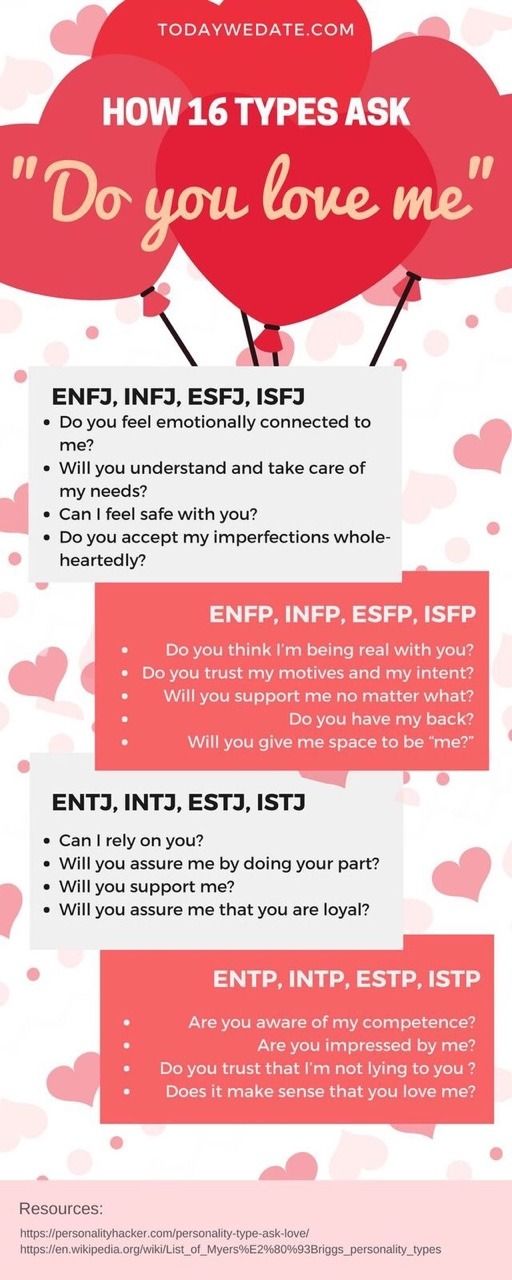 Couples where there is a partner with this type of personality always cause envy among others. The manager is an almost perfect boyfriend, but as a lover, he is completely unique! nine0003
Couples where there is a partner with this type of personality always cause envy among others. The manager is an almost perfect boyfriend, but as a lover, he is completely unique! nine0003
ESFJ Consul
Movie and TV characters: Cedric Diggory (Harry Potter and the Goblet of Fire), Troy Bolton (School Musical), Dean Winchester (Supernatural).
It takes a lot of effort to find such a cool partner! Consulars are naturally supportive and motivated, and they are extremely empathetic. Forgive me for taking such liberties, but this type is perfect for the role of your “first” 😏 You will definitely not feel awkward with him! nine0003
This personality type is known for starting relationships with great enthusiasm and great faith in a common future. He gradually and carefully builds the foundation of strong love, if his partner is really important and dear to him. Of course, the Consul is a little Don Juan, but the right person decides everything here.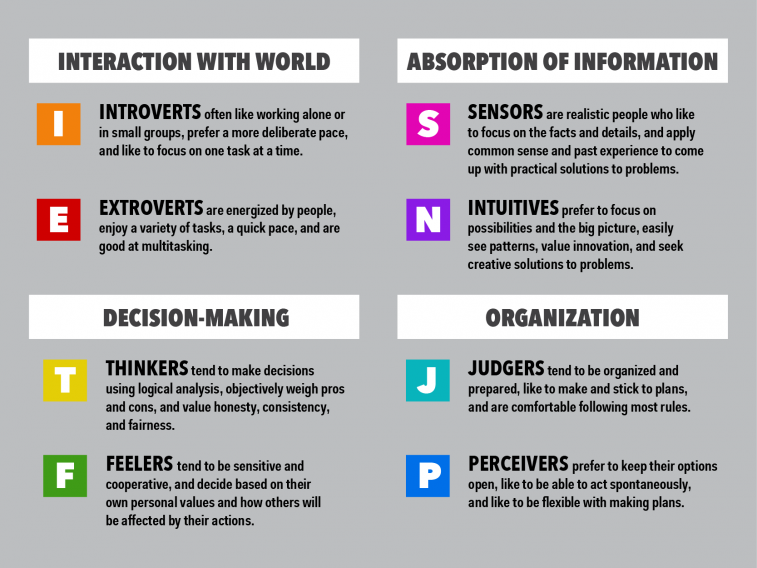 If you really managed to conquer this guy, then he will do everything for you!
If you really managed to conquer this guy, then he will do everything for you!
INTJ - Strategist
Heroes of movies and TV series: Stephen Strange ("Doctor Strange"), Severus Snape ("Harry Potter"), Victor ("Arcane"). nine0003
Who can resist a guy who knows what he wants and gets it? Yes, this is how you can describe the vibe of the Strategist. They perfectly represent the plan of their actions to win the heart, so much so that you will be amazed at its details. Of course, short-lived romances are pleasant to them, but if you turned out to be special, you will be amazed at how tenaciously they will seek your location.
Like the Activist, the Strategist believes in the connection between soulmates and destiny. For them, there is nothing more important than having a strong and satisfying relationship for both partners. For his part, he will do everything for this, but will demand the same in return. In bed, the Strategist will show new sides of himself every time, so fasten your seat belts and go ahead, fortunately! nine0003
ENFP — Wrestler
Movie and TV characters: 10th Doctor (Doctor Who), Professor (Paper House), Paul Atreides (Dune).
